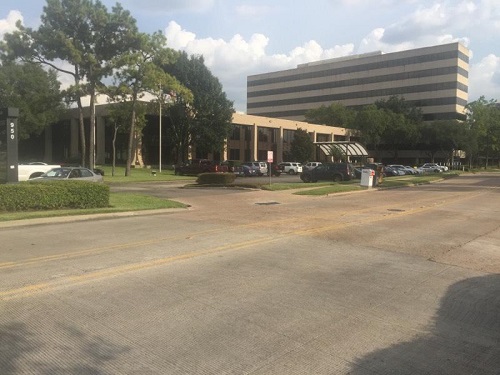Do you know that cancer is the second leading cause of death in the United States, after heart disease? In fact, one out of every four deaths in this country is due to cancer. And while there are many different types of cancer, some are more deadly than others. Esophageal cancer is one of those cancers.
Esophageal cancer is a type of cancer that affects the esophagus, which is the tube that carries food and liquid from the mouth to the stomach. It is a relatively rare cancer, accounting for less than 1% of all cancers in the United States. But despite its rarity, esophageal cancer is still one of
What is Esophageal Cancer?
Esophageal cancer is a disease in which cancerous cells form in the lining of the esophagus, the long, hollow tube that carries food and liquids from the throat to the stomach. Esophageal cancer is relatively rare in the United States, but its incidence is rising, especially among middle-aged and older adults.
There are two main types of esophageal cancer:
- Squamous Cell Carcinoma
- Adenocarcinoma
Squamous cell carcinoma starts in the thin, flat cells that line the esophagus. Adenocarcinoma starts in the glandular cells that produce mucus and other fluids. The vast majority of esophageal cancers are adenocarcinomas. Esophageal cancer can develop anywhere along the length of the esophagus, but it most commonly occurs in the lower third of the esophagus, near the junction with the stomach.
Causes of Esophageal Cancer
Cancers of the esophagus are usually found in people who drank heavily for many years or smoked for many years. Other risk factors include:
- Smoking
- Alcohol consumption
- Acid reflux or chronic heartburn
- Having had surgery to remove part of the stomach
- Having had radiation therapy to the chest or upper abdomen
- Having certain disorders of the esophagus, such as achalasia or Barrett’s esophagus.
Cancers of the esophagus can also occur in people with no known risk factors. Esophageal cancer is more common in men than in women and is most commonly diagnosed in people between the ages of 55 and 85.
African Americans are more likely to develop esophageal cancer than whites. Asians are also at increased risk, especially those from South China, Japan, and Iran. Esophageal cancer is one of the few cancers for which incidence rates are increasing in North America and Europe. This may be due, in part, to the increasing popularity of smoking cigarettes and drinking alcohol.
Symptoms of Esophageal Cancer
Esophageal cancer typically exhibits few symptoms in its early stages. As the disease progresses, however, patients may experience:
- Weight Loss
- Chest Pain
- Fatigue
- Difficulty Swallowing
In some cases, Cancer of the esophagus can also lead to coughing up blood or hoarseness.
Diagnosing of Esophageal Cancer
Esophageal cancer is a type of cancer that affects the esophagus, the muscular tube that connects the throat to the stomach. Esophageal cancer can occur in any part of the esophagus, but it most commonly affects the lower portion of the tube. Esophageal cancer is typically diagnosed using a combination of tests, including a physical examination, endoscopy and biopsy.
In some cases, additional tests, such as imaging studies or genetic testing, may also be used to help confirm the diagnosis. Treatment for esophageal cancer typically involves surgery, radiation therapy, and/or chemotherapy. The type of treatment will vary depending on the stage of cancer and the patient’s overall health.
Treatment of Esophageal Cancer
Esophageal cancer is usually diagnosed at an advanced stage when it has spread to nearby lymph nodes or other organs, such as the liver or lungs. Treatment option for esophageal cancer includes surgery and chemotherapy or radiation therapy.
Surgery:
Surgery is the primary treatment for this condition. The type of surgery performed depends on the stage of the cancer. For early-stage cancers, surgery may involve removing a small section of the esophagus. For more advanced cancers, surgery may involve removing part of the esophagus and nearby lymph nodes. Following surgery, patients may need to undergo radiation therapy or chemotherapy to ensure that all cancerous cells have been eliminated.
Living with Esophageal Cancer
Living with esophageal cancer can be difficult. Cancer can make it hard to swallow and eat, and you may lose weight. Treatment for esophageal cancer can also be hard on your body. It is important to talk with your doctor about ways to manage side effects.
You can do various things at home to help yourself feel better. For example, you can eat smaller meals more often, drink liquids between meals, and prop up your head when you sleep. You also may want to try relaxation techniques or talk with a counselor. Esophageal cancer is a serious disease, but there are ways to live well with it. Talk with your doctor about what will work best for you.
References:
- Abbas, G., & Krasna, M. (2017). Overview of esophageal cancer. Annals of cardiothoracic surgery, 6(2), 131.
- Bouvier, A. M., Binquet, C., Gagnaire, A., Jouve, J. L., Faivre, J., & Bedenne, L. (2006). Management and prognosis of esophageal cancers: has progress been made?. European journal of cancer, 42(2), 228-233.
- Enzinger, P. C., & Mayer, R. J. (2003). Esophageal cancer. New England Journal of Medicine, 349(23), 2241-2252.


